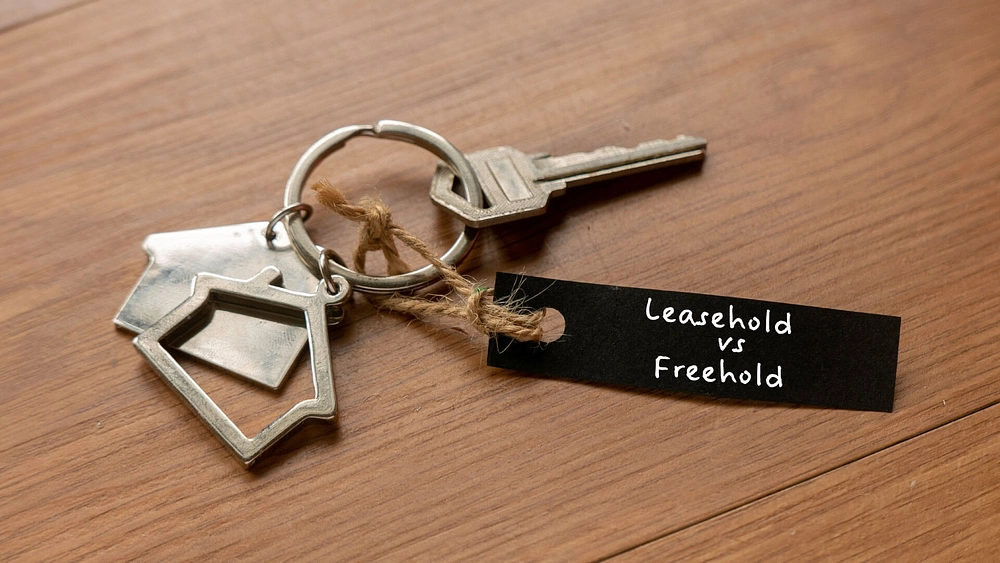Signature Collection
Explore SignatureDubai’s real estate market is highly diverse, offering a wide range of property options for residents and investors alike. One of the key considerations when purchasing a property in Dubai is choosing between freehold and leasehold ownership. Understanding the differences between these two property types is essential to make an informed decision, especially for those planning long-term investments or home ownership. In this article, we’ll dive into the distinctions between freehold and leasehold properties in Dubai, their advantages and how they impact buyers.
Freehold Properties in Dubai
A freehold property in Dubai refers to complete ownership of both the property and the land it is built on. Foreign nationals can purchase freehold property in designated areas of Dubai, allowing them to own the property outright with no time restrictions. As a freehold property owner, you can sell, lease or pass the property to heirs, giving you full control over its future.
Freehold properties are mainly available in designated zones for foreign investors, as outlined by Dubai's government. These zones include popular areas such as Arjan, Barsha Heights, Business Bay and Downtown Dubai. Purchasing freehold real estate offers a range of benefits, making it a highly attractive option for expatriates and investors who want to take full advantage of the emirate’s growing market.

Leasehold Properties in Dubai
Leasehold properties in Dubai allow buyers to lease a property for a specific duration, usually up to 99 years. With leasehold ownership, the buyer essentially leases the property and has full rights to occupy and use the property for the duration of the lease. However, the ownership of the land remains with the original owner, usually the government or an Emirati national.
Leasehold areas in Dubai are typically found in established neighborhoods, including Deira, Umm Suqeim, Jumeirah, and Al Barsha. Unlike freehold properties, the lease agreement involves periodic renewals or re-negotiations, depending on the original terms. Buyers must also adhere to certain conditions in the lease, such as maintaining the property’s condition and following local regulations.

Differences between Freehold and Leasehold in Dubai
Understanding the difference between freehold and 99-year lease in Dubai is crucial for prospective property buyers. Here’re the key distinctions between the two types:
- Ownership: With freehold property, you own both the land and the property. Leasehold properties give you the right to occupy and use the property for a fixed period, typically 99 years, but not the land.
- Control: Freehold ownership gives you full control over your property, allowing you to sell, lease, or transfer ownership without restrictions. Leasehold owners must adhere to the terms of the lease and require the landowner's permission for any major alterations.
- Duration: Freehold ownership is permanent, whereas leasehold properties come with a fixed lease period that will eventually expire. When the lease ends, the land returns to the original owner unless renewed.
- Location: Freehold properties are available in designated areas open to foreign investors, while leasehold properties are often found in older or more established areas of Dubai.
- Maintenance: Freehold property owners are fully responsible for maintaining the property and land, whereas leasehold owners may share some maintenance responsibilities with the landowner.
Freehold vs leasehold property Dubai differences come down to ownership rights, costs and the level of control you have over the property. Freehold is ideal for those seeking long-term security and investment growth, while leasehold can provide a more budget-friendly entry into Dubai’s real estate market.
Leasehold vs Freehold in Dubai - Things to Consider

Pros of Freehold Properties
- Complete Ownership: Freehold property owners have complete control over their property and the land it’s built on.
- Investment Potential: Freehold properties offer higher potential for capital appreciation and can be sold or leased without any restrictions.
- Inheritance Rights: Freehold properties can be passed on to heirs, providing long-term security for families.
- Flexibility: Owners can make structural changes, renovations, or modifications to their properties without needing permission from a landowner.
Key Considerations While Buying Freehold Properties
- Investment Value: Freehold properties often come with a higher price tag due to the added benefit of land ownership. However, this also means greater long-term value and potential appreciation.
- Exclusive Locations: Foreign buyers are limited to specific freehold zones, but these areas are some of the most sought-after and strategically located in Dubai, offering premium living and investment opportunities.
- Complete Control, Full Responsibility: As a freehold owner, you are fully in charge of your property’s upkeep. While this involves maintenance costs, it also means you have the freedom to make improvements that can enhance the property’s value over time.
Pros of Leasehold Properties
- Lower Purchase Costs: Leasehold properties are generally more affordable than freehold properties, making them accessible to a broader range of buyers.
- Prime Locations: Leasehold areas are often located in established, central parts of the city that may not be available as freehold zones.
- Fixed Lease Period: Lease terms, usually up to 99 years, offer long-term usage of the property, providing stability for those who do not need full ownership.
Things to Consider for Leasehold Properties
- Shared Decision-Making: Since the land is not owned, major changes or renovations require permission from the landowner. This helps maintain the overall look and feel of the community, preserving property value for everyone.
- Lease Renewal Opportunities: After the lease term ends, the property typically reverts to the landowner. However, many lease agreements offer the option to renew, providing potential for continued occupancy.
- Guided Maintenance: Lease agreements often come with specific rules for maintenance and property care. This ensures that properties remain in great condition, contributing to a higher standard of living in the area.
FAQs
A freezone area in Dubai is a designated economic zone where businesses can operate under specific regulations that differ from the general laws applicable to mainland businesses in the UAE. Freezones are created to attract foreign investments and offer several incentives to companies, particularly those involved in international trade, manufacturing, services and innovation. Some popular freezone areas in the city are Jebel Ali, Dubai Internet City (DIC) and Dubai Media City (DMC).
Yes, freehold and freezone are different concepts. Freehold refers to property ownership where the buyer owns the property and the land it is built on outright, typically in designated areas open to foreign buyers, such as Dubai Marina and Palm Jumeirah.
In contrast, a freezone is a special economic area where businesses can operate with benefits like 100% foreign ownership, tax exemptions and easier business setup, but companies in freezones cannot trade directly in the UAE mainland without a local distributor. Freehold relates to real estate ownership, while freezones pertain to business operations.
For villas, Arabian Ranches, Emirates Hills and Jumeirah Park are the popular freehold areas in Dubai. And if you’re looking to invest in an apartment, the top freehold areas to consider are Emaar Beachfront, Jumeirah Heights and Jumeirah Beach Residence (JBR).
A 99-year lease is a long-term lease agreement where the leaseholder (tenant) is granted the right to occupy and use a property for a period of 99 years. In such an arrangement, the tenant does not own the property or the land it is built on, but they have full rights to use the property during the lease period. At the end of the lease term, the ownership of the property reverts to the original landowner, unless the lease is renewed or renegotiated.
In Dubai, a 99-year lease is commonly associated with leasehold properties, which are typically found in areas designated for long-term leasing rather than full ownership. This lease structure allows expatriates and foreign investors to enjoy long-term property rights without the full purchase of the land.
For more information, get in touch with us at Provident
 Apartments
Apartments Villas
Villas Townhouses
Townhouses Penthouses
Penthouses Commercial
Commercial See All Properties
See All Properties Commercial
Commercial Property Management
Property Management List Your Property
List Your Property Mortgages
Mortgages Conveyancing
Conveyancing Short Term Rentals
Short Term Rentals Property Snagging
Property Snagging Partner Program
Partner Program Currency Exchange
Currency Exchange PRYPCO
PRYPCO Ethnovate
Ethnovate Plots
Plots
